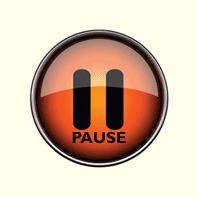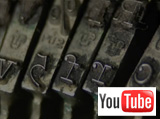|
|
How to get published
 Simple.
Do it yourself. Simple.
Do it yourself.
That's the short answer, anyway—but it's probably not the answer
you're looking for. What you really want to hear about is a
fast track to fame and riches. What you want to hear about is
an alternate route to the traditional path of working
hard, struggling for years, persistence, shrewdness, devotion—and
a little bit of luck.
And talent.
Trouble is, there isn't really any other way. Not for
most of us, at least. Word processors have turned us all into
"writers". Desktop publishing programs have turned us all into
"editors". Self-help books have made us all into armchair experts.
But the road to publishing paradise is still a tough one, even
when you handle it all yourself, and probably not one in a thousand
writers—or possibly one in ten
thousand—are going to make much of an
impact.
Which isn't to say you shouldn't try. Writing a novel is a tremendously
rewarding experience. I know because I've written a dozen or
more of them, and each one came with a huge sense of achievement.
If not any hard cash.
Yet.
But I'm still out there campaigning my books and improving my
batting average in terms of positive response from literary
agents and publishers, and I'm still reasonably hopeful that
sooner or later I'll make the breakthrough.
Maybe.
In the meantime, I'm publishing my own books. Not novels, mind.
Instead, I'm publishing a range of more specialised tomes
in various fields. And it pays. Not a fortune. But it's early
days for this project, and in the current economic climate,
people are understandably being very cautious with their money.
So watch this space.

Want to read more?
There are over 25,000 words of
writing tips and advice on my website. I've spent months
writing these pages, and years refining them. I'm happy to
share my professional knowledge with you. But like everyone
else, I need to capitalise on my skills and efforts.
For just £1.99 I'll send you my entire
MR EDIT'S WRITING ADVICE FOR AUTHORS as a .pdf file. Just follow the link below, or above, and you'll be taken to PayPal. You don't need an account; just a credit card or a
debit card.
You'll generally receive my writing
guide within an hour. But occasionally technical glitches
from PayPal delay this for up to 24 hours.
Either way, you'll receive 25,000
very helpful words that will make you a better writer, will
give you fresh insight into your work, and
will improve the chances of a literary agent or publisher
accepting your manuscript.

Mr Edit YouTube videos
Meanwhile,
here are some of my You Tube videos that might be of interest
to you. Hope you enjoy them.

Mr Edit. Let's talk about dialogue
https://youtu.be/KG0CLm1S9Rs

Mr Edit. Pitching fiction to a literary
agent.
http://www.youtube.com/watch?v=yy698w2Ooc8

Mr Edit. 5 Minute Fiction Fix.
https://youtu.be/y6OPUfcDH90

Mr Edit. Let's talk about tautology.
http://www.youtube.com/watch?v=_zhoBLImV6U
Links for writers
Preditors & Editors. Here's where you can check out the
credentials of literary agents and publishers. A must for any
writer.
http://pred-ed.com
Creative Helps. Helpful resource for the creative community.
Articles, links and tips.
http://www.creativehelps.com/products.htm
Nick Daws' Writing Blog. Lots of useful posts on all
aspects of writing, both for print and online, plus a guest
post for anyone who wants to make a contribution. Check it out.
http://www.mywritingblog.com

Back to the top
|
|
Creative writing
●
Writing tips
●
Plotting a novel
●
Finding a literary agent
●
Choosing a literary agent
●
Agent query letters
●
Inspiration for writers
●
Rejection letters
●
Manuscript critique
●
5 minute fiction fix
●
Proof reading
●
Writer's block
●
How to get published
●
Active & passive voice
|
Special features

Darley Anderson,
top UK literary
agent, on books,
publishing and success

Zoë Sharp,
creator
of the
action-packed
Charlie Fox series of books

Jeff Kleinman,
New York literary agent,
talks shop

Crème de la Crime:
An interview
with
Lynne Patrick,
publisher and
managing editor of a smaller—but
essential—British
publishing
house.
How to get published tips
Tip 1
1. Be professional at all times. This
can't be overstressed. If you sound like, or look like, an uncommitted
amateur, you'll be treated as such. It doesn't matter that you
are an amateur; in your mind you're a professional. Everything
you do should be of top quality.
Tip 2
Decide from out the outset what your true
goals are. Do you want to write commercially, or academically?
It makes a real difference. Broadly speaking, commercial writers
write for the market. Academic writers tend to write more for
their peer group. Or for posterity. That's not to say that either
type of writer is less committed or doesn't care about their
product. But the focus is different.
If you're trying to write commercial fiction, keep your mind's
eye on the money. Contrary to some advice, this is actually
more important than putting your manuscript and characters
and story first. Commercial writers learn to write what sells
even if that goes against their personal ideals. Prostitution?
That's exactly it. The only thing you need to worry about is
how far you're prepared to compromise your ideals.
Tip
3
Study the market and the market trends.
Things can change rapidly, and you need to adapt to those changes.
You may be "out of step" one year, only to find that things
are changing the following year. Can your work be quickly adapted?
Can you "spin" your query letters and synopses to embrace a
new style or trend. Look for opportunities and seize on them.
Tip 4
If you're considering self-publishing,
first try writing for a smaller, more select market. It's a
more cost effective way to learn the mechanics of publishing
without losing your shirt on an expensive flop. If you can demonstrate
to the trade that you've successfully self published a number
of titles, the mainstream trade is likely to take you more seriously.
That in itself will not guarantee a publishing deal.
But a successful track record of producing and selling books
will inspire confidence in you.
Also, it will help develop a "commercial
mindset", which is something most amateur writers simply do
not have.
Back to the top
|